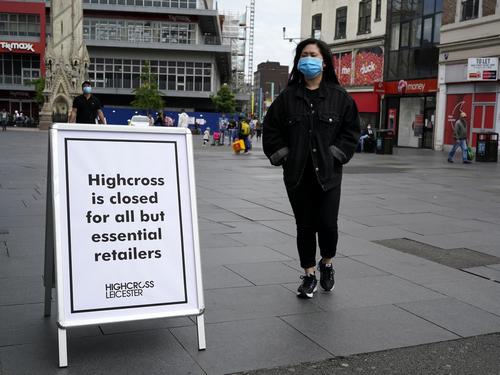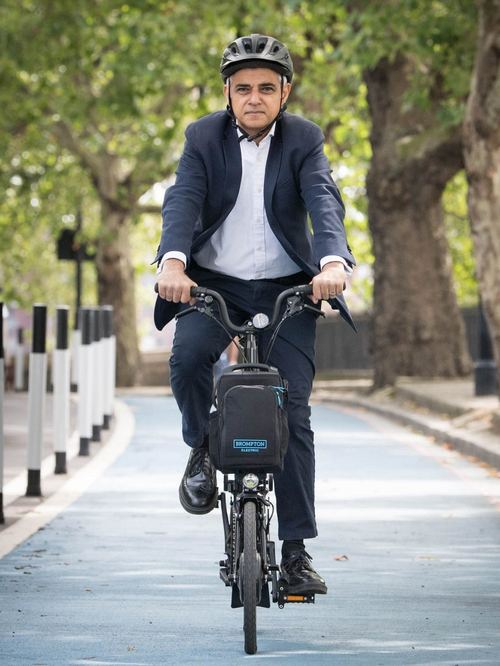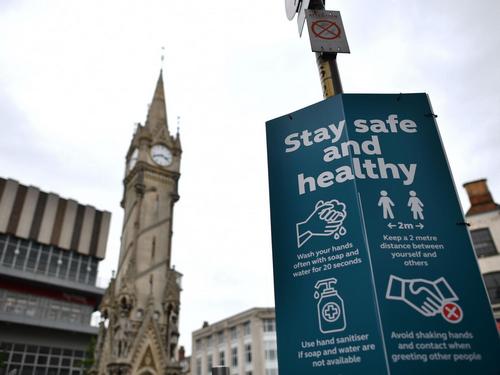The epidemiologist and former government advisor, whose modelling led to the initial UK-wide lockdown, believes that only 8 per cent of the British population has so far been infected with coronavirus.
The Independent employs reporters around the world to bring you truly independent journalism. To support us, please consider a contribution.
Professor Neil Ferguson has said that more localised lockdowns in the UK are “inevitable”, as he warned that the Covid-19 pandemic is still in its “early stages”.
As the country prepares to ease restrictions and take a tentative step back to normality, Prof Ferguson has said that the recent lockdown imposed on Leicester is likely to be enforced in other cities in the weeks and months to come.
“It’s inevitable we will,” he told BBC Radio 4 on Wednesday. “We’re relaxing lockdown rules and that means contacts in the populations are going up.

“That’s a very variable process from place to place. That means in some places where there are too many contacts, we’ll get clusters of transmissions. What’s critically important is we detect those early and adopt the measures necessary to locally reduce transmissions again.”
The government announced on Monday that Leicester would be placed back into lockdown following a recent surge in Covid-19.
The city has recorded 10 per cent of all positive cases in the country over the past week, while hospital admissions for coronavirus have crept up to between six and 10 a day – compared to around one a day at other hospital trusts.
All non-essential shops were shut on Tuesday while most schools are due to be closed on Thursday. Authorities are set to review the lockdown measures in two weeks’ time.
Prof Ferguson said that, alongside Leicester, the north-west, Bradford and Doncaster were also “clearly of concern”.
“Those are areas not as high as Leicester but they have some of the highest number of cases per 100,000,” he said.
“But whether we need more measures will depend on if we can pull those case numbers down.”
Cities and towns including Bradford, Barnsley and Oldham as well as parts of London are being monitored closely amid fears that Leicester-style flare-ups could emerge elsewhere, sources told The Independent on Wednesday.
When asked where the UK placed in international comparisons, Prof Ferguson said it was “difficult to answer” but admitted that “we were one of the most heavily seeded countries in Europe”.
1/51 24 July 2020
Mayor of London Sadiq Khan tries out a new Streetspace protected cycle lane in London at the launch a new online cycle training scheme
2/51 23 July 2020
A customer has her hair cut outside at Blade Hairdressers in Soho in London
3/51 22 July 2020
Liverpool’s English midfielder Jordan Henderson lifts the Premier League trophy during the presentation following the English Premier League football match between Liverpool and Chelsea at Anfield in Liverpool. Liverpool on Wednesday lifted the Premier League trophy at the famous Kop stand at Anfield after their final home game of the season
4/51 21 July 2020
Vivienne Westwood demonstrates outside the Old Bailey in support of Julian Assange in London
5/51 20 July 2020
Comet Neowise in the skies over the Lovell Telescope at Jodrell Bank in Cheshire
6/51 19 July 2020
Mods and rockers unite on Madeira Drive, Brighton, for a demonstration to call for the reopening of the road which Brighton & Hove City Council plans to keep closed permanently
7/51 18 July 2020
People enjoy the sunny weather at Painshill, an 18th century landscape garden in Cobham, Surrey
8/51 17 July 2020
Captain Sir Thomas Moore receives his knighthood from Queen Elizabeth, during a ceremony at Windsor Castle
9/51 16 July 2020
Red Arrows do a flypast during the Graduation Ceremony of the Queen’s Squadron at RAF College Cranwell, Lincolnshire
10/51 15 July 2020

Jen Reid poses in front of a black resin and steel statue titled ‘A Surge of Power (Jen Reid) 2020’, which is based on her by Marc Quinn, where it has been installed on the vacant Edward Colston plinth in Bristol city centre. The original statue was pulled down and thrown into Bristol Harbour during Black Lives Matter protests
He added: “The epidemic was more progressed. Per 100,000 of the population, yes, we’re one of the worst affected countries.
“I would say, before we make international comparisons though, just bear in mind we are still very early into this pandemic – there’s a bit of an illusion out there that somehow we are past the worst. In this country we’ve probably had no more than 8 per cent of the population infected.
“You just need to see what’s going in places like Latin America and the US, and indeed across the world in terms of clusters, that this is far from over.
“Lessons can be learned from what happened in the UK up to now but I would prefer to focus on getting the next six months right.”
Prof Ferguson said it was important for the country’s test and trace system to be fully effective before September, at which point most restrictions are expected to be lifted and children return to school, and warned that the next “few weeks” must be spent resolving any lingering issues in current data systems between local and national governments.
He said that “we’re going into an era where we’re relying on individual judgement going forward in day-to-day life”.
The former Sage member, who resigned in May for breaking lockdown rules, added: “People cant just go straight back to normal. They have to judge the risks associated with the interactions they’re having.”



